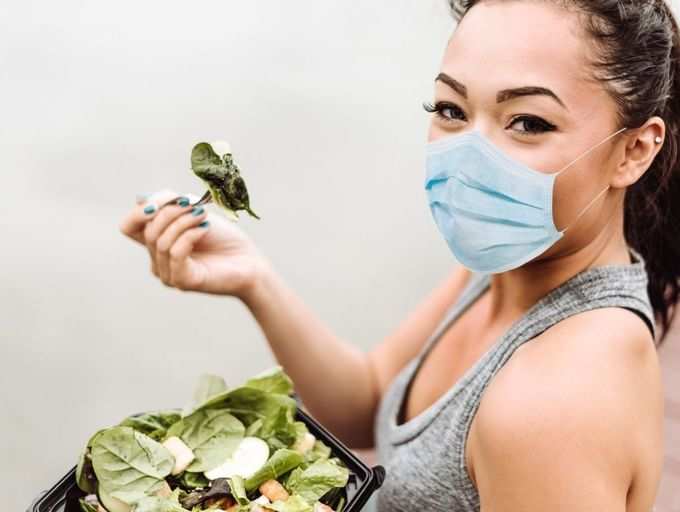
Regardless of the extent to which COVID-19 has influenced our health and way of life, it has undoubtedly increased our awareness of our bodies’ demands and the food that best combats infection threats. Consuming nutritious foods and avoiding harmful processed foods is a piece of advice that has been passed down through the centuries. However, as we sink more into modernity and get exposed to larger capitalist marketplaces, we will constantly be lured to goods that, although pleasurable, are extremely damaging to our health or even can Impact Covid-19 Risk.
However, considering the current state of the economy, it is always preferable to be more informed and conscientious about the meals we should consume and avoid.
Dietary factors in the fight against COVID-19
While vaccinations, COVID treatments, and COVID-appropriate behavior all contribute to mitigating infection risks, food also plays a critical role in fighting the SARs-COV-2 virus. Consuming nutritious meals not only alleviates COVID symptoms but also restores energy and alleviates post-COVID tiredness.
Apart from the food you consume, maintaining adequate hydration and sleep are two more lifestyle decisions you may make to combat COVID-19. Adopting an unhealthy lifestyle has a detrimental effect on both your physical and emotional health. Consuming fatty meals, drinking insufficient water, and living a stressful life all contribute to an unhealthy lifestyle. It may increase your chance of excessive weight gain, which is another risk factor for coronavirus.
Can particular meals affect our susceptibility to infection? What does the study conclude?
As a society, we recognize the critical nature of consuming nutritious foods and adopting appropriate dietary choices, particularly when it comes to lowering our risk of contracting COVID-19. Additionally, professionals have provided their perspectives on the subject.
Coffee, breast milk, and kale, according to researchers at Northwestern University in Chicago, may help lower your COVID-19 risk factors. The scientists utilized data from the UK Biobank to examine the relationship between dietary habits from 2006 to 2010 and COVID-19 cases from March to November 2020 in the same individuals.
The research analyzed data from 38,000 persons who had themselves tested, with 17% testing positive for the virus. Certain meals were shown to have an effect on the immune systems of the research participants.
Among the several items studied, coffee, vegetables, and breast milk all lowered COVID-19 risk by 10%, but tea, fruits, and red meat had no effect.
Foods that increase your chances of illness
The study discovered a connection between processed meats such as hot dogs and deli meats and an increased risk of illness. According to the study, even half a meal of processed meat every day might raise the risk of COVID-19 by 10%.
Processed foods are and have been recognized as some of the healthiest foods available. Apart from causing weight gain, it can also predispose people to chronic diseases. Unhealthy, fried, and greasy meals are frequently associated with cardiovascular problems.
Nutrition can impact covid-19 risk
COVID-19, as we all know, is a respiratory infection that gradually causes inflammation throughout the body. While there has been no revelation about how certain meals affect COVID-19 risk, the researchers feel that the link between diet and COVID-19 is more about inflammation than a specific food element.

